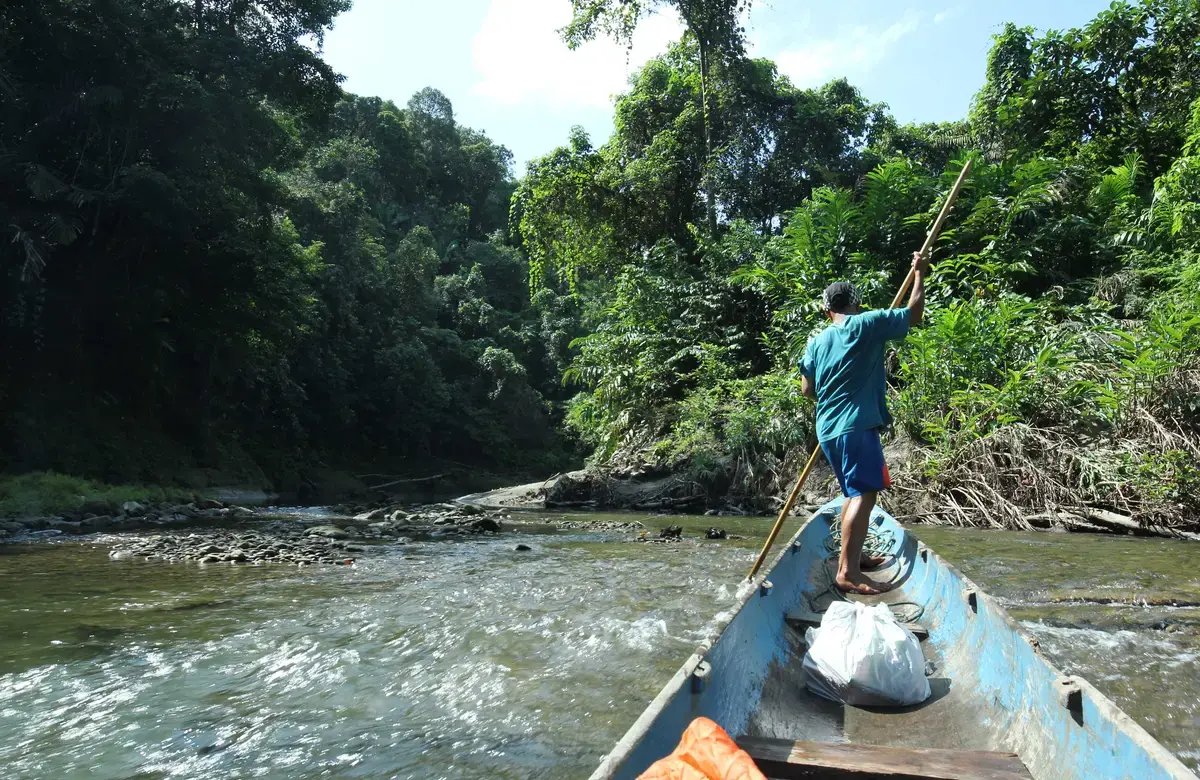Nhấn vào đây để đọc thông tin này bằng tiếng Việt.
Klik di sini untuk membaca informasi ini dalam bahasa Indonesia.
Forest restoration, a form of reforestation, is viewed as an important approach to addressing the climate crisis and maintaining rainforests and their biodiversity. The purpose of forest restoration is to restore a degraded forest to its original state – to re-establish the presumed structure, productivity and species diversity of the forest originally present at a site. Forest restoration helps to rehabilitate a forest, as it restores the capacity of the degraded forest land to deliver its beneficial ecological products and services.
The Southeast Asia Rainforest Journalism Fund and the Pulitzer Center are opening a special call for reporting grant applications on forest restoration and rehabilitation issues. Journalists, editors, and independent media organizations are invited to submit a proposal for a journalistic project that will cover stories related to forest restoration in the region.
The proposals may address relevant initiatives of forest restoration or rehabilitation that range from REDD+ to community-led projects from any angle (successes, solutions, challenges, unintended consequences, etc.). The Southeast Asia RJF advisory committee, which will review the proposals, is looking for strong, innovative, collaborative projects. Criteria are detailed in the section below. Click here to access the application form.
Proposals are due by November 30, 2020. We are accepting proposals in English, bahasa Indonesia, and Vietnamese language. The review committee will select a limited number of projects meeting the proposal criteria.
Eligibility. Independent/freelance and staff journalists, newsrooms, and independent news organizations working with any media (print, multimedia, radio, TV broadcast, etc.) are welcome to apply. Applicants can be of any nationality but should be based in the Southeast Asia region. If a team or newsroom is applying, the team lead should be the main applicant.
Applications can be received in Vietnamese language, Bahasa Indonesia, or English. Reporting and publication may be done in any language(s).
Topic. The proposal should address the forest restoration and/or forest rehabilitation issues in the Southeast Asia region, that range from REDD+ to community-led projects from any angle (successes, solutions, challenges, unintended consequences, etc.).
Criteria. Proposed projects should be innovative, collaborative, and leverage digital media as appropriate. Ideal projects will have a strategic distribution, including partnerships or uses of social media that can reach a wide or diverse audience.
Proposals should demonstrate attention to editing, reporting, and safety standards (particularly in the context of COVID-19). Proposals should also consider the impact of the reporting on local communities and Indigenous people, and may mention potential impact on policy or society if appropriate.
Projects may involve: data journalism (in-depth analysis and visualization); digital, multimedia storytelling (audio slide shows, photo essays, video stories, infographics, etc.); long-form scrolly-telling; 360-degree visuals, AR or VR; crowd reporting.
Instructions. Applicants should be submitted via the form at the link below. The form will require the following information:
- A description of the proposed project (250 words max.), including the following information: topic/focus on forest restoration or forest rehabilitation and its timeliness; reporting and editing.
- Deliverables and distribution plan (100 words max.), including 1) publication plan and media partnerships and 2) digital strategy (newsletters, social networks, partnership, multimedia, web archive or database)
- Potential impact (optional), including, possible anticipated impacts to policy makers or to the livelihood of locals, or to forest conservation efforts
- Budget details, including a basic breakdown of costs
- For the lead journalist: contact information, CV, three work samples, and three professional references
- For the rest of the team: description of roles, professional qualifications, and CVs where possible.
Budget: There is no minimum or maximum award amount for these grants. Budget will depend on the specific project and should be justified with necessary details and planning.
For approved projects, half of the grant amount is generally paid just before the reporting and the remainder is delivered upon submission of the principal material for publication or broadcast. Specific grant terms are negotiated during the application process.
Application timeline: The special call will be open from November 9-30, 2020. The selected grantees will be notified by the end of December 2020 and reporting can commence as soon as January 2021.
